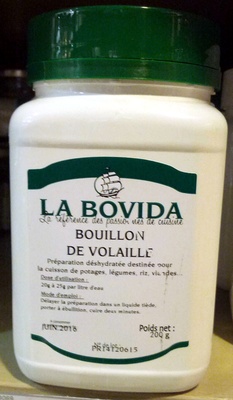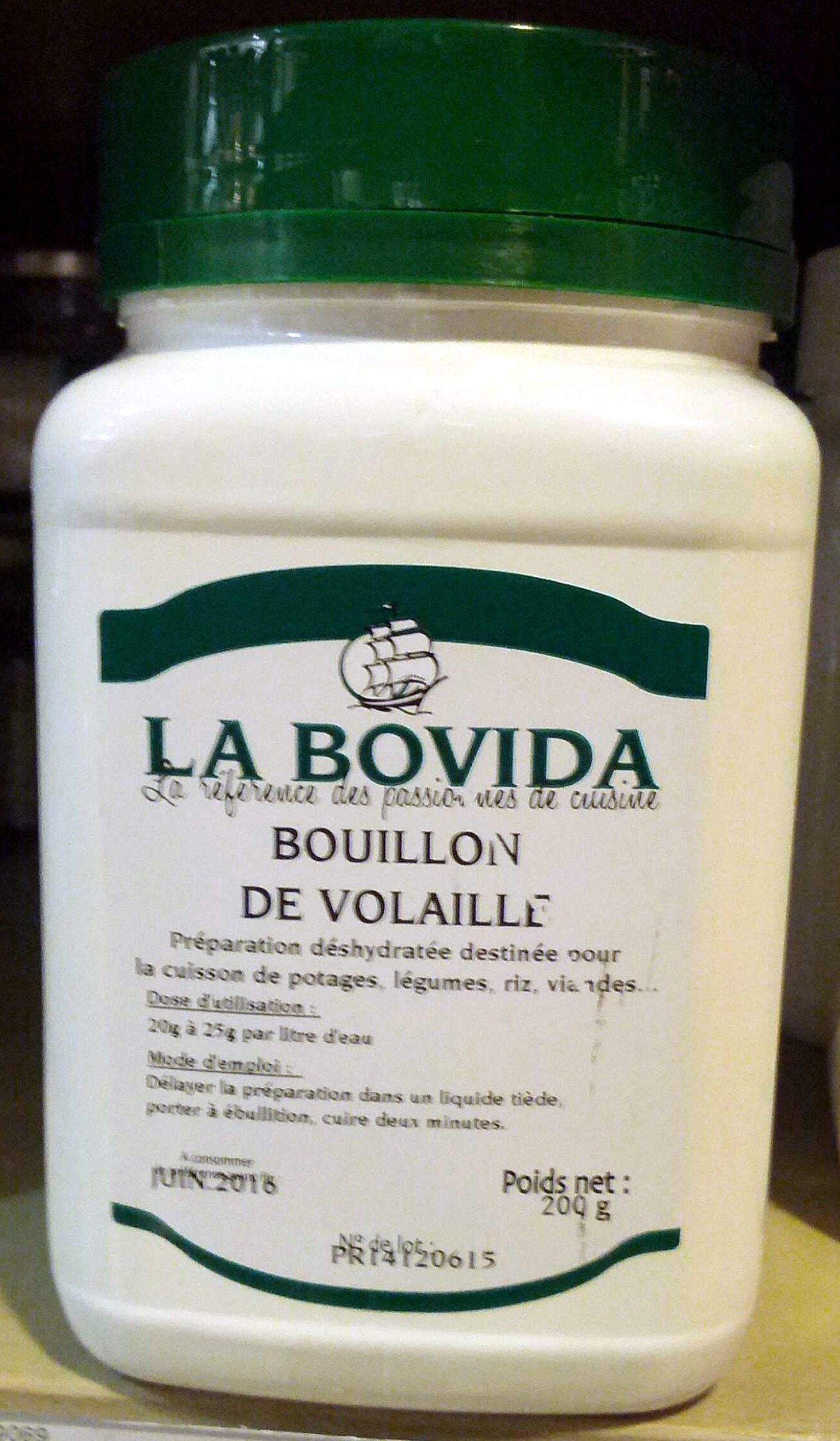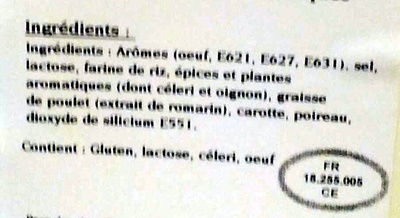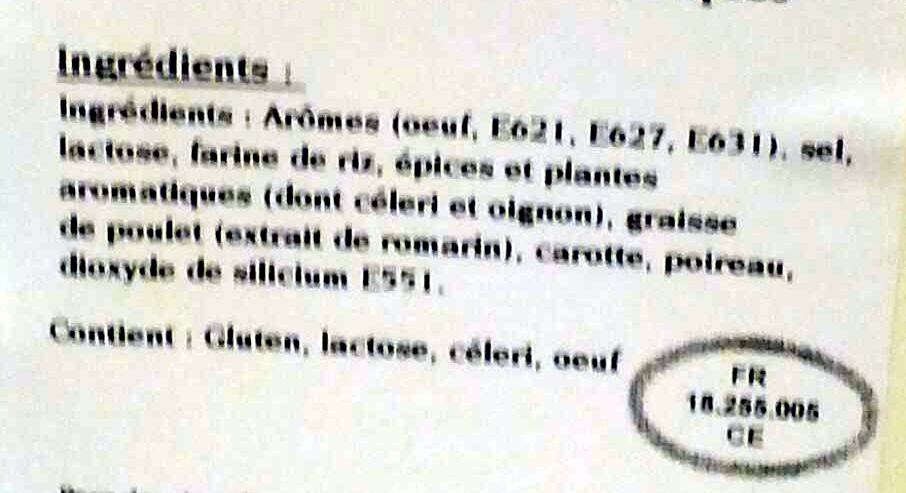Bouillon de Volaille - La Bovida - 200 g
This product page is not complete. You can help to complete it by editing it and adding more data from the photos we have, or by taking more photos using the app for Android or iPhone/iPad. Thank you!
×
Barcode: 3598560026631 (EAN / EAN-13)
Quantity: 200 g
Brands: La Bovida
Categories: Dried products, Dried products to be rehydrated, Broths, Dehydrated broths, Poultry broth, Groceries
Manufacturing or processing places: France
Traceability code: FR 18.255.005 CE - Subdray (Cher, France), EMB 18255 - Subdray (Cher, France)
Stores: La Bovida
Countries where sold: France






